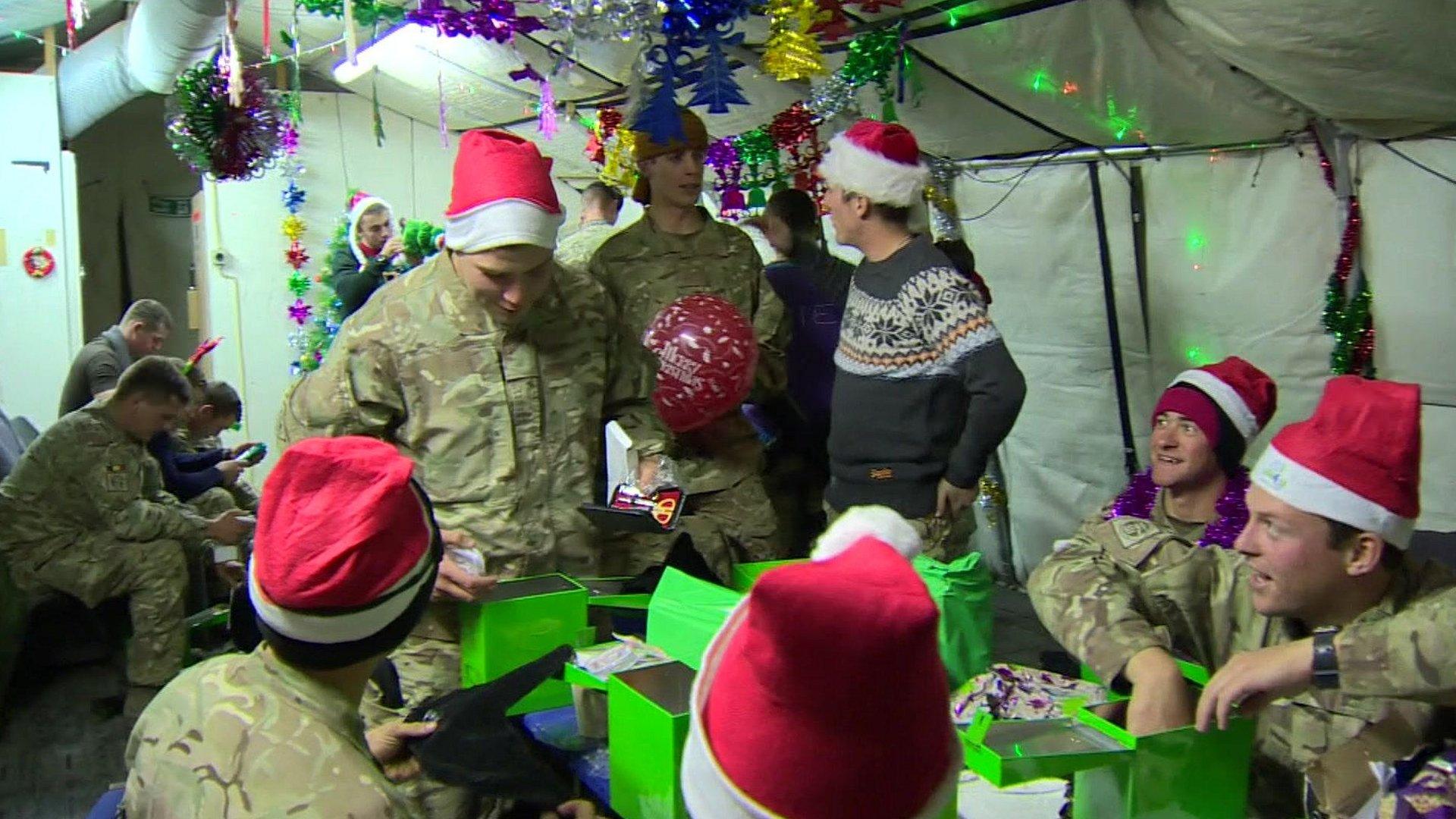Saying goodbye to Camp Bastion
- Published
.jpg)
After eight years in Afghanistan's Helmand province, British forces are packing up to go home
At one of the shops serving the troops in Camp Bastion there are plenty of reminders that this war is nearly over, at least for those who have travelled from Britain and America.
There are fewer goods on sale. Some of the items still in stock are on special offer. The souvenirs on display are still full price, but they too make clear that the end is now in sight.
There are drinks glasses with the message "Been there; Done that", while a mug reads "Happiness is Helmand in the rear view mirror".
Bastion was once a bustling military metropolis, in its sheer scale comparable to Reading. But it is now slowly becoming more of a ghost town.
Compounds that were once filled with tents or military vehicles lie empty. There are fewer men and women walking around in uniform, and the constant chopping of the air by helicopter blades has become more intermittent.
.jpg)
There are now 4,000 UK personnel in Afghanistan, down from 10,000 at the height of the conflict
While Bastion is gradually shrinking, most other British bases in Helmand have already disappeared.
At the height of the war, about 10,000 British military personnel occupied 137 bases across the province in southern Afghanistan.
As of today there are about 4,000 UK personnel occupying just two: the main operating base at Bastion and an observation post called Sterga 2, which provides a useful vantage point over the Helmand valley.
In the coming months Sterga will be handed over to Nato command with the British-led "Task Force Helmand" swallowed up into Regional Command South West with a US Marine Corps brigadier general in overall charge.
Lashkar Gah, a main operating base and the old British headquarters, has been handed over to the Afghans.
The buildings that until recently housed a British provincial reconstruction team are to become a health centre. Not that there will be any UK presence to witness the transformation when it happens.
Make no mistake: this is a complete withdrawal by the British from one of the most violent areas of Afghanistan.
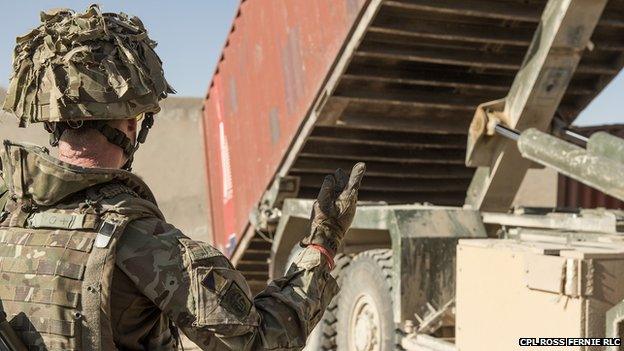
"We have been sending out 20 or 30 containers a day and it is a nightmare, waking up thinking 'did this container go?'"
Camp Price was once home to 2,000 troops. Over the last few weeks it has been flattened. Chainsaws and diggers are the new weapons for British soldiers.
The saws are used to tear down the "Hesco" walls that once protected them, while the diggers level the ground. From dust to dust. Even the concrete barriers which became makeshift memorials, with graffiti honouring fallen comrades, have been taken away.
Capt David Goodman watches as the last shipping containers are lifted onto lorries. A total of 600 containers have left Price since October.
He says: "I am now dreaming of ISO containers. We have been sending out 20 or 30 a day and it is a nightmare, waking up thinking 'did this container go?'"
Legacy
Hardly anything has been left behind. Which raises questions about what will be the lasting legacy of British forces after eight years in Helmand and 448 British military deaths.
It is certainly not peace. As the last containers are loaded onto lorries at Camp Price you can still hear gunfire in the distance.
Lt Col Mike Caldicott of the Royal Logistic Corps led the last military convoy out of Price and it was probably one of the last logistic patrols in Helmand.
He is convinced they have made a difference. "I only wish that people at home could see the changes I have seen through my eyes," he says. "I think they would feel a lot better about the investment we have made."
That view contrasts with some of the soldiers we talked to who appear keener to dwell on going home than on what they leave behind.
One puts it simply: "Job done, get home". Another comments: "I will miss the sun, that is probably about it."
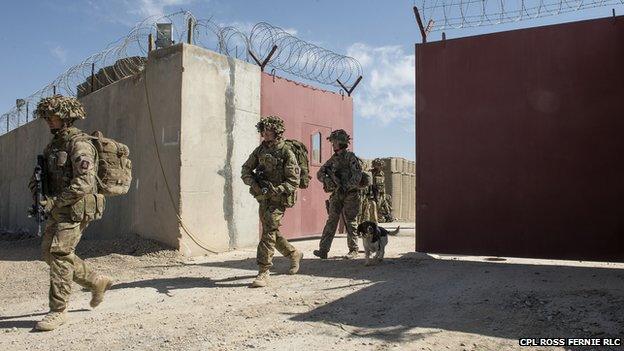
There is still a lot to be done, says the most senior British general in Afghanistan
Most of the soldiers we speak to believe they have made a difference. But you will not find many in uniform repeating the claim made by David Cameron last year that it is already "mission accomplished".
The most senior British general in Afghanistan, Lt Gen John Lorimer, says "extraordinary things have been achieved across the country". But when I ask him if it is "mission accomplished" he carefully avoids repeating the phrase.
Instead he says: "There is still a lot to be done." One senior British officer tells me that if Iraq was the A-level exam, Afghanistan is the PhD.
Back home, the assessment is probably more stark.
The current reticence over military intervention reflects the public's weariness of war.
More stable?
Margaret Evison lost her only son, Mark, in Helmand in 2009. She says she has had time to adjust to her loss but adds: "There is nothing in my mind that would justify my son's death."
On the wider question of what has been achieved she says she is not sure the British withdrawal comes at a time when Afghanistan is more stable.
As for David Cameron's assertion that it is "mission accomplished", her response is "Well he has to say that!"
Brig James Woodham will be the last commander of Task Force Helmand. He too says there is still a lot of work to do.
He believes there has been progress but admits that "ultimately history will be the judge of what has been achieved".
What seems strange is that after investing so much here for the past eight years there will soon be no British military presence at all to help write the final chapter.
- Published12 October 2015
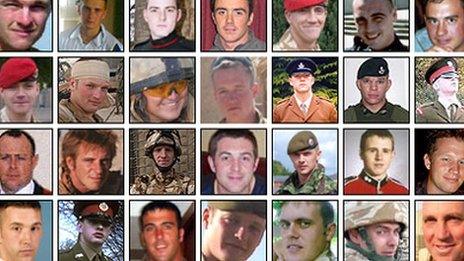
- Published16 December 2013
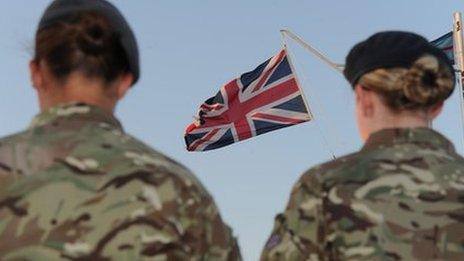
- Published28 January 2014
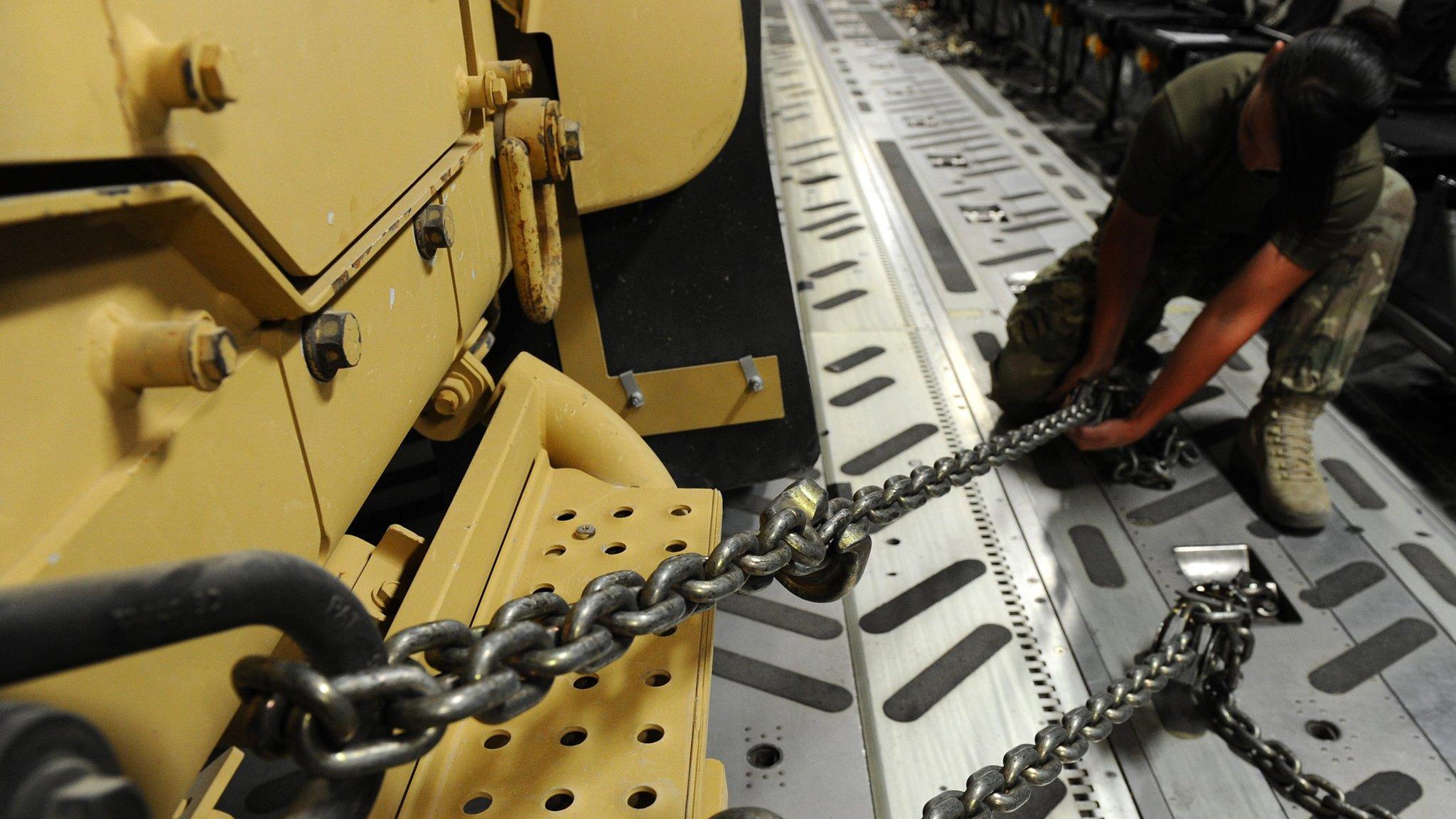
- Published24 September 2012
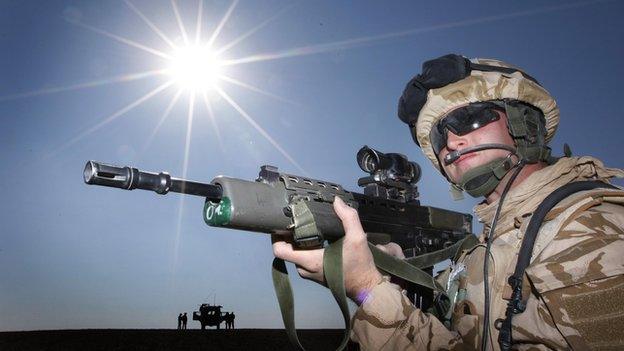
- Published25 December 2013
